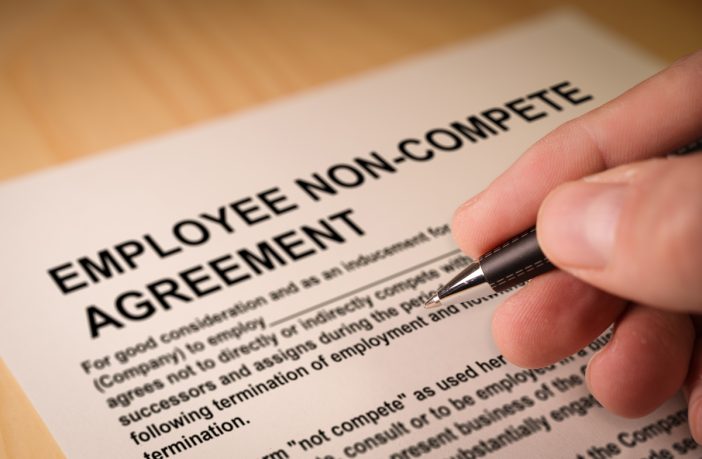By Kimberly B. Malerba and Nicole E. Osborne
The New York State legislature recently passed a bill that, if approved by Governor Hochul, would effectively ban all non-compete agreements in New York. The bill would become effective 30 days after it is signed by the Governor. If this bill becomes law, New York would join a larger nationwide push to ban non-competes, following behind Minnesota, California, North Dakota, and Oklahoma, all of which have passed similar legislation.
In addition to action on the state level, there has been movement on the federal level to ban non-compete agreements. As previously discussed in RMF’s “Most Non-Competes Violate Federal Law According to NLRB General Counsel” blog post, the National Labor and Relations Board has recently issued a memorandum finding that a majority of non-compete agreements violate the National Labor Relations Act. This trend is further emboldened by the prior directive of President Biden to the Federal Trade Commission to issue a rule banning, or at least limiting, most non-compete agreements in the United States. More information regarding the Federal Trade Commission’s proposed rule is outlined in RMF’s “What Employers Should Know About the FTC’s Proposed Ban on Non-Competition Clauses” blog post.
Covered Employees
The New York bill sets forth a broad definition of “non-compete agreement,” defining it as “any agreement or clause contained in any agreement, between an employer and a covered individual that prohibits or restricts such covered individual from obtaining employment, after the conclusion of employment with the employer included as a party to the agreement.” For the purposes of this legislation, a “covered individual” means “any other person who, whether or not employed under a contract of employment, performs work or services for another person on such terms and conditions that they are, in relation to that other person, in a position of economic dependence on, and under an obligation to perform duties for, that other person.” Under this broad definition, not only are employees covered but independent contractors may be covered as well, if they are in a position of economic dependence on the employer.
Already Existing Non-Competes
Significant, even if the bill is signed, it will not apply retroactively, meaning it would not have an impact on already existing non-compete agreements. However, any non-compete agreement entered on or after the effective date would violate this law. Further, any modification after the effective date of an existing non-compete agreement may result in the restrictions being null and void. Additionally, it is unclear how a recitation of a previous non-compete agreement in a new contract or separation agreement would be treated under this impending law.
Limited Exceptions
The bill includes virtually no exceptions to the broad proposed broad ban on non-compete agreements. However, the bill does provide that agreements prohibiting the disclosure of trade secrets or confidential and proprietary information are still valid, as well as client non-solicitation agreements. Notably missing from the bill is any clarity on whether non-solicitation agreements relating to a company’s employees will be permissible.
Surprisingly, the bill is also silent with respect to non-competes attendant to the sale of a business. It is common practice to impose restrictive covenants for a fixed period after the sale of a business. Further, such carve outs exist in nearly all of the legislation on this topic in other states, and in the proposed guidance on the federal level. Despite this, it is unclear if this practice will be made null and void as a result of the bill in New York.
Private Right of Action
An aggrieved individual may commence a civil action for violations under this bill (if signed) within two years of the later of: (i) when the unlawful non-compete agreement was signed; (ii) when the individual learns of the prohibited non-compete agreement; (iii) when the employment or contractual relationship ends; or (iv) when the employer takes any steps to enforce the non-compete agreement. Courts will have the jurisdiction to void any non-compete agreement and to award employees “all appropriate relief” including damages for lost compensation, attorneys’ fees, injunctive relief, and liquidated damages up to $10,000.
Protecting Yourself as an Employer
While this bill is not yet law, employers should begin to take steps to prepare for a post-non-compete world in New York. Although this bill would not apply retroactively, it is important to review the language of a business’s current employee and independent contractor agreements to assess whether they violate the provisions of this bill, and if they do, assess the proper next steps the business should take to adequately protect its confidential information and trade secrets in the event that it is signed. The blind spots and ambiguity in this bill create gaps and unknowns that may be addressed in future legislation or by the courts.
Ruskin Moscou Faltischek will continue to monitor the status of the pending legislation and is prepared to assist employers in staying apprised of further developments on this issue on the state and federal level. If you have any questions regarding the pending ban on non-compete agreements in New York or any other employment related questions, please contact Kimberly Malerba at [email protected] or (516)-663-6679 or Nicole Osborne at [email protected] or (516)-663-6687.
CREDIT: Ruskin Moscou Faltischek, P.C.














